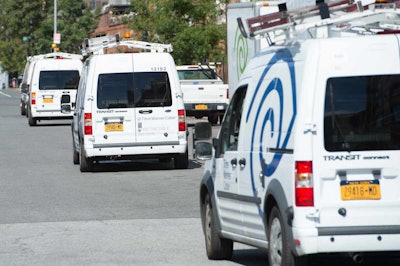
Time Warner Cable is joining a partnership administered by the U.S. Department of Energy to further reduce petroleum use and increase efficiencies within its fleet of more than 20,000 service trucks and vehicles – one of the largest private sector fleets in the country.
TWC’s participation in the DOE’s Clean Cities’ National Clean Fleet Partnership is part of the company’s “Go Green” initiative and overall commitment to corporate responsibility, under which TWC is on track to meet or exceed a 15 percent reduction in 2012 total carbon intensity by the end of 2014.
“One of TWC’s core values is a commitment to responsible business practices that positively impact the communities we serve,” says Rob Marcus, TWC chairman and CEO. “TWC looks forward to working with other large national fleet owners to share best practices that will drive down our fuel consumption, overall vehicle costs and environmental impact.”
The Clean Cities’ partnership establishes strategic alliances with large private fleets to help them explore and adopt alternative fuels and fuel economy measures to reduce petroleum use.
TWC will be provided with technical services, data and assistance to develop a petroleum reduction plan, and be given access to tools and resources to navigate alternative fuels and advanced vehicles. TWC will also have access to information exchange among other Fortune 500 companies that are Clean Fleet Partners.
TWC is replacing service vehicles with Ford Transit and Ford Transit Connect vehicles that are capable of achieving a 40 percent fuel performance improvement over replaced fleet.
The company has also doubled the number of Electric Power Take Off devices within its fleet of bucket trucks, which reduces idle time as it allows the vehicle to be shut down when the bucket is in use.








